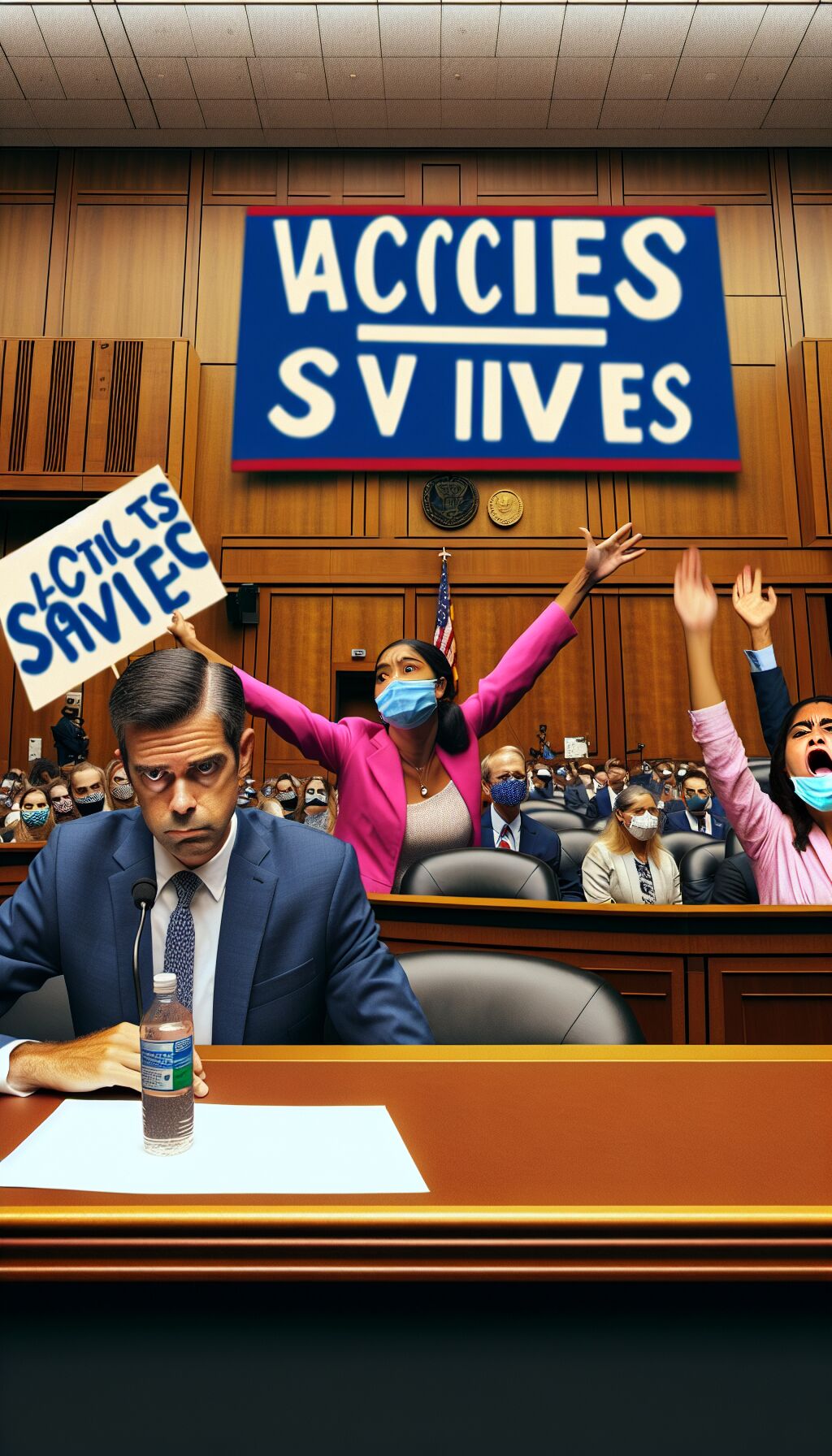Robert F. Kennedy Jr.’s Senate Hearing Marked by Protests
Protests Disrupt Senate Confirmation Hearing
Robert F. Kennedy Jr., President Donald Trump’s nominee to lead the Department of Health and Human Services (HHS), faced significant interruptions during his confirmation hearing before the Senate Finance Committee on Wednesday morning. The session was marred by several outbursts from protesters who challenged Kennedy’s statements regarding vaccines.
Kennedy’s Opening Remarks
As Kennedy began his opening remarks, he emphasized his stance on vaccine safety. “I want to make sure the committee is clear about a few things. News reports have claimed that I’m anti-vaccine or against any industry. I am neither. I am pro-safety,” he stated. However, his words were soon drowned out by a female protester who shouted, “You are!” This incident marked the beginning of a tumultuous session.
Committee Chair’s Intervention
In the midst of the chaos, Senate Finance Committee Chair Mike Crapo intervened, attempting to restore order. “To the audience, comments from the audience are inappropriate and out of order. And if there are any further disruptions, the committee will recess until the police can restore order,” he warned. After confirming that Kennedy could proceed, the hearing continued amidst the tensions.
The Role of Protesters in Senate Hearings
Protesters displayed signs, including one reading, “Vaccines Save Lives, Not RFK JR,” further illustrating the climate of dissent surrounding Kennedy’s nomination. His hearing on Wednesday was only the first of two appearances, with a subsequent session scheduled before the Health, Education, Labor, and Pensions Committee (HELP) on Thursday.
Kennedy’s Defense of His Views
Despite the protests, Kennedy defended his views on vaccines during his testimony. “I’ve worked for years to raise awareness about the mercury and toxic chemicals in fish. And nobody called me anti-fish,” he pointed out. He went on to reiterate his commitment to vaccination, stating, “I believe that vaccines play a critical role in healthcare. All of my kids are vaccinated. I’ve read many books on vaccines.” He noted that his first book published in 2014 explicitly stated, “I am not anti-vaccine,” both in its opening and closing lines.
Challenging the Status Quo
Kennedy expressed his frustration with the current state of health discourse, asserting, “In my advocacy, I’ve often disturbed this status quo. I am asking uncomfortable questions. Well, I’m not going to apologize for that. We have massive health problems in this country that we must face.” These claims reflect his controversial position and the backlash he faces from protesters and public figures alike.
Protests: A Recurring Theme
The uproar during Kennedy’s hearing is not an isolated incident; it reflects a broader trend of protests targeting nominees from Trump’s administration. Earlier this month, both Secretary of Defense Pete Hegseth and Secretary of State Marco Rubio encountered similar disruptions in their respective hearings. This pattern raises questions about the effectiveness of Senate processes amid rising public dissent on health and policy issues.
The Broader Implications of Kennedy’s Nomination
The nomination of Robert F. Kennedy Jr. has brought to light significant divisions in American society regarding vaccine safety and public health discourse. With protests becoming common in political settings, the challenge for lawmakers may not only be about passing nominations but also about addressing the underlying issues fueling public discontent.
Conclusion
As Kennedy prepares for his next opportunity to present his views before Congress, the potential for further protests looms large. The ongoing debates surrounding vaccine safety and public health reflect not only the contentious atmosphere in American politics but also a growing desire among citizens to voice their concerns about influential appointments. The outcome of Kennedy’s nomination remains uncertain, and the responses of both lawmakers and the public will undoubtedly shape the future of health policy in the United States.
